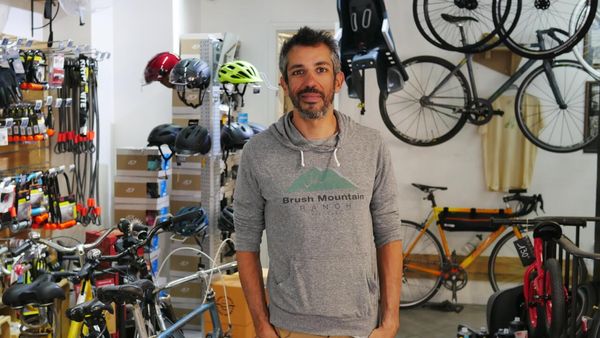PDD Holdings showed up on my screener for stocks crossing below their 21-day moving average.
I think the stock has a chance to drop down to the 135 level in the next few weeks.
Today we are looking at a butterfly trade centered at that level.
A butterfly is a limited-risk and limited-profit trade. But on a typical butterfly trade, the profit potential is higher than the potential loss. In this case, it's a lot higher.
Placing the trade out-of-the-money means it can be done for a low cost with a large profit potential.
Butterfly spreads involve three different option strike prices, all within the same expiration date, and can be created using either calls or puts.
Creating Butterfly On PDD Stock
Because we are placing the butterfly below the market, we will use puts in this case to reduce the risk of early assignment. Here's the trade I'm looking at:
- Buy 1 July 19, 120-strike put @ $0.70
- Sell 2 July 19, 135-strike puts @ $3.10
- Buy 1 July 19, 150-strike put @ $10.50
The total cost of this trade is $500, and that is the maximum loss potential on the trade.
Trade Can Return Twice As Much As It Risks
The maximum gain is $1,000 which is calculated by taking the difference in strike prices less the premium paid ($1,500 less $500).
If PDD doesn't get down to 135, I lose a little bit, but have the potential for a large payoff if it does hit 135 in about six weeks' time.
I would set a stop loss if PDD hits 150, which would see the trade down $120 or so.
According to the IBD Stock Checkup, PDD stock is ranked No. 1 in its industry group. It has a Composite Rating of 99, and EPS Rating of 99 and a Relative Strength Rating of 93.
China-based PDD Holdings is the parent company of Pinduoduo, which provides an e-commerce platform allowing users to participate in group buying deals, primarily through Tencent's WeChat app. Pinduoduo is based in Shanghai, China. PDD also owns the Temu deep-discount shopping app.
PDD Holdings is due to report earnings in late August, so this trade should have no earnings risk.
Please remember that options are risky, and investors can lose 100% of their investment.
This article is for education purposes only and not a trade recommendation. Remember to always do your own due diligence and consult your financial advisor before making any investment decisions.
Gavin McMaster has a Masters in Applied Finance and Investment. He specializes in income trading using options, is very conservative in his style and believes patience in waiting for the best setups is the key to successful trading. Follow him on X/Twitter at @OptiontradinIQ







